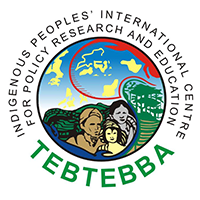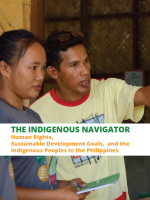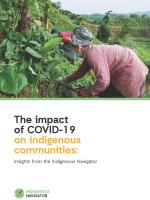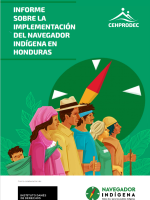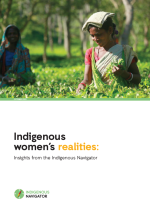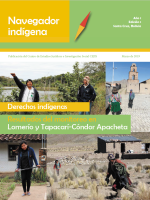The Indigenous Navigator: Human Rights, Sustainable Development Goals and the Indigenous Peoples in the Philippines
A report on the implementation of the Indigenous Navigator Framework in the Philippines
The Indigenous Navigator (IN)-Philippines tracked the state of implementation of the United Nations Declaration on the Rights of Indigenous Peoples (UNDRIP) through the national survey component—a complement to the community survey component. The IN-Philippines posited that the UNDRIP dimensions (bundle of rights) are tantamount to several, if not all, of the UN Sustainable Development Goals (SDGs). Ninety percent (90%) of the national survey was filled out with data gathered largely from secondary sources spanning the year 2008 (year when UNDRIP was enacted) to the present. What follows is a summary of our findings.
The Philippine State has been implementing the UNDRIP through its national framework, the IPRA, which resembles the UNDRIP both in spirit and content. This national survey reveals the significant milestones and outcomes in the four bundle of rights since the 1997 enactment of the IPRA. At the same time, there are also continuing actual and potential threats to and violations of these very same rights. These mixed and paradoxical outcomes tend to validate the earlier view of an IP rights advocates that “IPRA is a double-edged sword,” meaning, it could either work for or against the IPs depending on several factors, foremost of which, is the actual play of power relations between and among state, civil society, and IP organizations and communities. The IPs find themselves in a “double-bind,” as defined by Gregory Bateson (cited by Ludlow, et al., 2016) in which no matter what the IPs do, even in the midst of UNDRIP and IPRA that are supposed to empower and protect them, there seems a less or no chance of winning.
To date, some 16 million hectares of ancestral domains and lands have been given titles by the National Commission on Indigenous Peoples (NCIP), even as several applications still await final action by the NCIP. However, IPs continue to be displaced from their territories largely due to land grabbing, mining, agribusiness, construction of dams, and illegal logging. Laws contradicting the IPRA continue to persist even in areas that have already been applied to as Certificate of Ancestral Domain Titles (CADTs )and Certificate of Ancestral Land Tiles (CALTs). In some instances, CADTs have facilitated the entry of big business (e.g. mining) into the IP territories, which led to the division of IP communities.
There are legal instruments aside from IPRA that allow IPs in exercising their rights to self-government and empowerment. In principle, and to some extent in practice, Indigenous political systems and customary laws are recognized by these laws. To a certain extent, too, the right to mandatory representation (IPMR) has been carried out across the country. Yet, studies show that the IPMR mechanism has been “marred” by political patronage and captured by the political elite, thereby diffusing the essence of direct, effective, and meaningful participation of IPs in governance. The Free and Prior Informed (FPIC) has been leveraged by IPs as an instrument in asserting their rights to self-determination. In some cases, the IPs have been successful in doing so, but in many other cases, big businesses were successful in leveraging the IPRA law and the FPIC process as means to procedurally obtain consent but unable to deliver the substantive aspect of that consent.
There are several laudable measures, programs, and projects by various government agencies that address the IPs rights to cultural integrity. However, there was a significant backslide with the recent decision of the Marcos administration to abolish the teaching of mother tongue from the K-12 curriculum. This was done amidst the fact that many Indigenous languages are already considered “endangered” or in the verge of vanishing.
Despite the presence of several national programs and projects that aim to alleviate poverty among IPs, they remain still the poorest 20% quintile of Philippine society. This may be attributed largely to the lack or no access to basic social services like education, health, potable water, electricity, to identify a few.
With regard to human rights and social justice, the Philippine State reported in 2022 that it is doing its best to comply with international human rights conventions and frameworks that it is a signatory to. But the reports from human rights organizations here and abroad show that much remains to be done on the part of the Philippine State, as reflected in the increasing number of IPs who fall victims to various forms of human rights violations.
Overall, the UNDRIP has been carried out in the Philippines mainly through the IPRA that resembles it to a large extent. However, much remains to be done. The fact that IPs continue to be the poorest of the poor in the Philippines (using human development indicators) is a solid testament to this conclusion. The rights of the IPs as enshrined in the Philippine Constitution and the IPRA remains much to be desired. The Philippine State, the civil society organizations, and IP communities agree, at least in principle, that the full implementation of UNDRIP through IPRA is a valuable key to achieve the Sustainable Development Goals of and for Indigenous Peoples.
